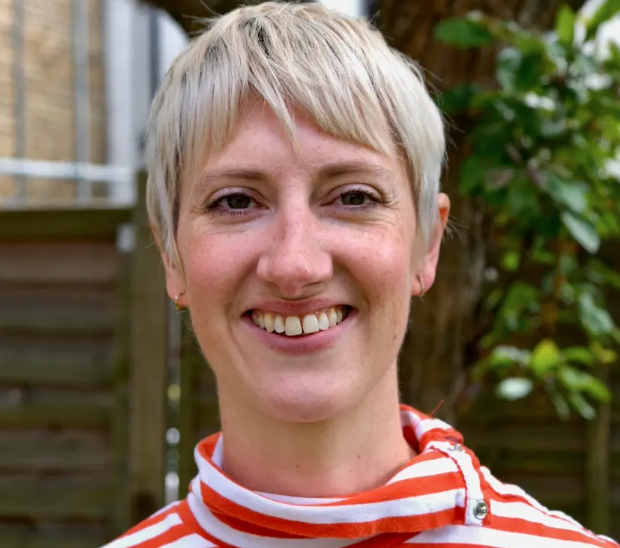Rhiannon Robertson is a therapist in Ramsgate and online
What attracted you to become a therapist?
I have always been fascinated by people and their internal world. However, becoming a therapist wasn't on my radar until I reached a point where I felt unfulfilled in my job. At the time I was project managing a creative mentoring scheme and the aspect of the job that I loved the most was the pastoral element. I decided to do an evening course in counselling skills and I loved it so much it quickly snowballed into applying for an MA.
Where did you train?
University of Roehampton - I studied for an MA in Integrative Counselling and Psychotherapy
Can you tell us about the type of therapy you practise?
I am a relational integrative therapist. I see the therapeutic relationship as key to growth and healing, and I use Rogers' core conditions as the foundation to this.
As well as focusing on the here-and-now relationship, I also think in terms of the client's past. I use psychodynamic theory to formulate why a client may think, feel, and behave why they do to and to help understand what is happening transferentially in the room.
How does relational integrative treatment help with trauma or complex PTSD?
By working relationally, you can co-regulate with a client who is often insecurely attached and dysregulated. By empathically attuning they will feel compassionately understood and accepted, which increases their sense of trust.
Psychoeducational resources can help with the stabilisation, and a psychodynamic approach bring awareness to a client's triggers and defence mechanisms.
Unwanted behaviours, feelings, and thoughts that have come about as a result of the trauma may begin to become reorganised and reintegrated, as they learn new ways to address them.
It's also important to remember that the 'body keeps the score' so a somatic element is also essential in any trauma work.
What sort of people do you usually see?
I work with individual adults and teenagers 16+. I really enjoy working with young people as I find it very creative.
I practice a lot of trauma-focused therapy with clients who have had adverse childhood experiences. This is something I have taken a particular interest in since working in secondary care in the NHS.
Have you noticed any recent mental health trends or wider changes in attitude?
I seem to be encountering more clients who have not been able to access mental health services, despite having enduring mental health problems. They are often too complex for primary care, but not complex or risky enough to be referred to secondary care.
What do you like about being a therapist?
I love building relationships with my clients and I often come to care about them deeply. I think it's a privilege to be trusted with someone's most intimate thoughts and feelings.
What is less pleasant?
At times working in private practice can be isolating. For that reason, it's always been important for me to balance my private practice with working in an organisation, so I can spend time with my peers
How long have you been with Welldoing and what you think of us?
I have been a member of Welldoing for four years. I think the newsletter and the resources available through the website are excellent. The new free CPD programme also looks fantastic.
Do you ever suggest books or apps to clients?
Yes absolutely, I think it can be really helpful to cement some of the themes discussed in the sessions.
Recently I've been recommending a podcast interview with the family therapist Terry Real. This has been helpful for clients who have specifically been struggling to connect in relationship with others. I'm also currently working with a few new mothers and I have found myself often referencing and sharing resources on Winnicott's concept of the 'good enough mother'.
What you do for your own mental health?
I get a lot of joy from spending time with friends and my family. I think as a therapist it's really important to carve out time to have fun and not take yourself too seriously!
You are a therapist in Thanet, Kent. What can you share with us about seeing clients in this area?
The socioeconomic polarity of the area is very stark, and I see the impact of deprivation and a lack of mental health and other social services on some of the clients I work with.
What do you wish people knew about therapy?
Sometimes the most fruitful therapy sessions are when you arrive thinking you have nothing to talk about.
What did you learn about yourself in therapy?
There's so much to say here, but I learnt how to be more vulnerable, which has led to deeper and more meaningful connections with others.
The therapist I had whilst training modelled to me how important it is to be yourself the therapy room, including using humour appropriately.

